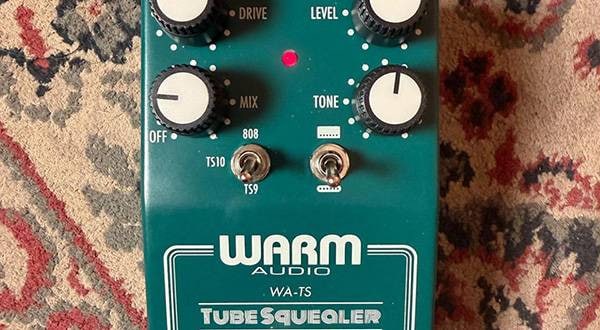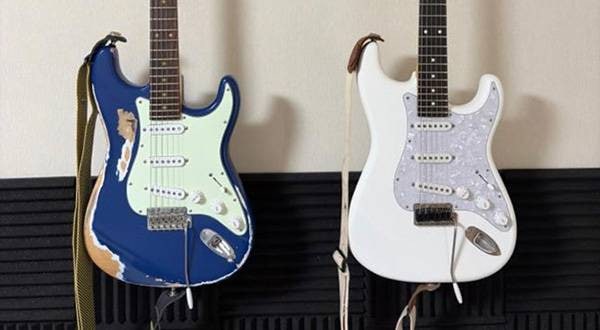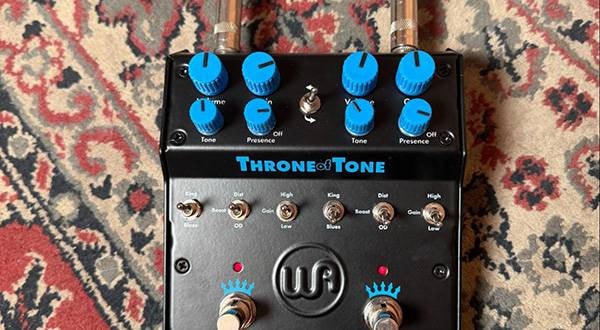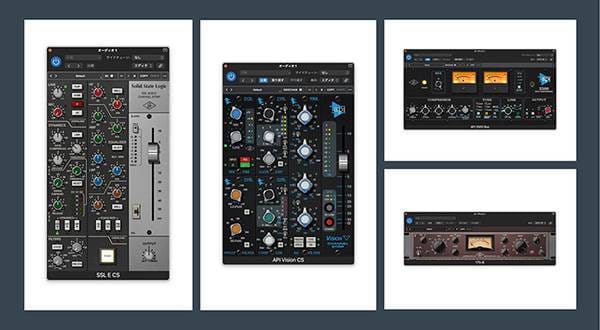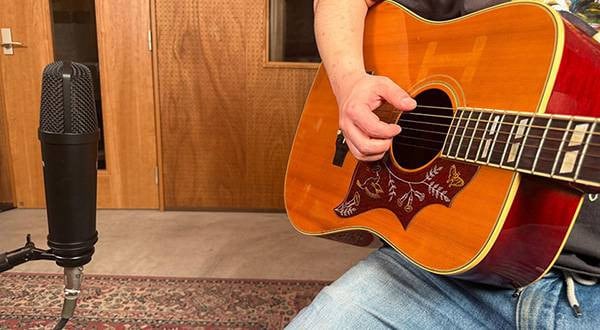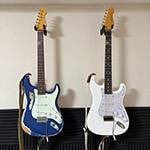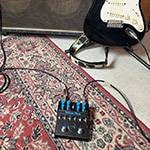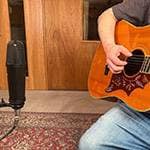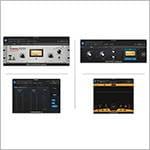Hello!
My name is Takuto Fujioka, guitarist in an acoustic unit called BABY BABY and an occupational therapist.
Thank you for always reading!
Today I would like to talk about the relationship between posture and the ease of getting tired.
When practicing the guitar, do your hands, arms, and shoulders easily get tired or, in the worst case, numb?
When I tried practicing the guitar for the first time in a long time, I had the experience that my right arm and left hand became tired after a little practice. They didn’t get numb, but my muscles felt stiff.
Of course, if you practice for a long time, you may simply get tired from muscle fatigue.
However, if you get tired after 5 minutes or 10 minutes of practice, you should consider the possibility of a different cause.
Rolled shoulders are one of the causes of tiredness.
Rolled shoulders generally refer to the "state in which the left and right shoulder blades are rolled inward." The scapula is originally located near the spine, but when it comes to the rolled shoulders posture, the scapula is separated from the spine.
It is similar to a stooped posture, but rolled shoulders are different from a stoop. A stoop is a posture in which the whole spine is rounded.
It is thought that the cause of rolled shoulders is rooted in your usual posture and how you use the body.
Also, it is a common posture when playing the guitar. Therefore, it is in a posture that makes it easy to roll your shoulders.
As you can see from the side, when you hold the guitar, the neck inevitably protrudes forward, the shoulder blades open, and the shoulders roll inward.

It is not a bad thing to have a rolled-shoulder posture, but it's a bad habit to continue.
As the posture of the rolled shoulders becomes a habit, the muscles around the shoulder blades and chest become stiff. When muscles become stiff, blood flow that carries oxygen and nutrients is blocked, making it easier to get tired. In addition, the rolled shoulders put the lungs in a compressed position, and your breathing becomes shallow without even noticing it. If this happens, oxygen will not reach the entire body, and the body will become tired easily.
If this state continues,
- Stiff shoulders do not heal...
- You cannot stay focused…
- You cannot get refreshed even if you take a break…
- It feels good after a massage or stretch, but that doesn't last long...
…and so on, and it becomes a vicious circle.
If you are familiar with these symptoms, first check what kind of posture you usually have and try to recognize the current situation.
If the posture of the rolled shoulders has become a habit, even if you carefully correct the posture only when playing the guitar, this will not be a fundamental solution.
- Posture when using a computer
- Posture when touching the smartphone
- Posture when carrying a bag or luggage...
Focus on how you use your body in your daily life.
Also, rather than rushing to stretch or do muscle training temporarily, I would like you to first try "recognizing your current posture, what you are doing habitually."
Of course, exercise is important to improve the condition of your shoulders. However, there is a big difference between recognizing this and not recognizing it. I think that this is the most important point in improving the rolled shoulders and reviewing your posture.
The reason why “recognition” is important is that you can improve your body image by “feeling the change in posture before and after you do exercises".
Most people who have rolled shoulders think that the rolled shoulder posture is the default posture. Even if you realize that you have a rolled shoulder, you often do not notice that the range of motion around the scapula is reduced. In addition, there are cases in which there is "awareness" that you have rolled shoulders, but it is not possible to objectively "recognize" it.
If you do not recognize your posture and keep the body image of your shoulders, you often do not notice any changes in your body before and after you exercise your body. No matter how hard you try to stretch or work out in this state, it is difficult to really improve.
When the brain remembers the body image of the original correct posture, the brain and body will request that posture, so it will be possible to naturally take and maintain the correct posture.
Confirming the position of the scapula requires some knowledge and tips. Please refer to this column([Body Distortion] Things guitarists should know about their body)for details on how to check the position and condition of the scapula.
In addition, I would like to write another article on how to improve rolled shoulders.
This time, the content has become a bit stiff, but the important thing is to "feel the change in posture before and after exercises", so please be aware of what has changed before and after you move your body.
If you have any concerns about your physical condition or posture related to guitar or music, please contact me via my official LINE account(https://lin.ee/6AGJ9JX) and I will answer you to the best of my ability !!
See you soon!
コラム「sound&person」は、皆様からの投稿によって成り立っています。
投稿についての詳細はこちら






